
Projects
CSTEPS research portfolio covers a range of topics and brings together outstanding faculty and researchers from around the world. Many of our project topics intersect with a several research areas including: relationships between social structure and human behavior, adaptation to environmental change, the science-policy interface, public-private governance models and social equity.
Learn more about our current and past research projects below.

All Research Projects

Center for Clinical and Translational Science (NIH)
The Clinical and Translational Science Awards (CTSA) consortium is funded by the National Center for Research Resources (NCRR), a part of the National Institutes of Health (NIH).

Patenting Behavior of Academic Scientists and Engineers: A Micro-level Analysis of the Factors that Determine the Production of University Patents
Research on university patenting has focused primarily on aggregate analyses of temporal changes in quantity and quality of university patents, their impact and utilization, and their distribution by class.
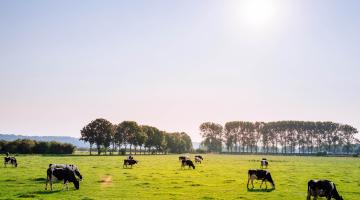
Access and Benefit Sharing for Non-Plant Genetic Resources in Agriculture
Knowledge for Policy: Critical Research for Understanding Potential Impacts of ABS on Eight Sectors of Genetic Resources for Food and Agriculture

Genetic Resources Policy Initiative (GRPI)
Developing capacity to effectively implement the ITPGRFA: Research on policy network structure, actor characteristics, and coalitions

Integrative Graduate Education, Research and Training (IGERT) Program Evaluation (NSF)
The NSF’s IGERT program is designed to develop university-based programs for graduate education and training that integrate collaborative research that transcends traditional disciplinary boundaries.

Minority Access to Research Careers (NIH)
The Minority Access to Research Careers (MARC) Branch seeks to increase the number of highly-trained underrepresented biomedical and behavioral scientists in leadership positions to significantly impact the health-related research needs of the nation.

Social Media in the Workplace
The emerging and important area of social computing, or the support of social behavior through computing technologies, is expected to have significant implications for the conduct of work in modern organizations.

Evaluating Engagement through Technology: Digital Excellence Demonstration Communities in the Chicago Region
This project consists of the design and baseline interviews for an evaluation of an innovative project to integrate digital inclusion initiatives into community-building efforts in several low-income Chicago neighborhoods.

Positioning the Institute for Policy and Civic Engagement (IPCE)
The Institute for Policy and Civic Engagement (IPCE) is a new organization at the University of Illinois at Chicago primarily funded by the State of Illinois. IPCE’s mission is to “transform democracy by creating a more fully engaged citizenry with more effective leaders”.
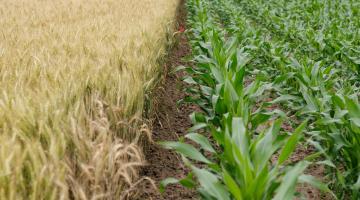
Climate Smart Technology Networks (CSTNets)
Climate Smart Technology Network (CSTNets) is part of the 2014-2019 Climate Change for Agriculture and Food Security (CCAFS) Flagship Four initiative.

Institutional and Organizational Factors for Enabling Data Access, Exchange and Use Aims for DivSeek
The primary aim of DivSeek is “to enable breeders and researchers to mobilize…plant genetic variation to accelerate the rate of crop improvement”.

Travel Training Program Evaluation (US DOT)
Public transportation and public educational programs are mandated to provide transportation services for mentally and physically disabled individuals.
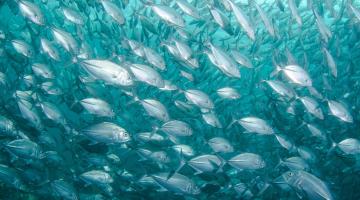
Cap and Trade Policies (Catch Shares) in Ocean and Marine Resources
While the problem of the commons is more important to our lives and
thus more central to public policy and management, it remains
unsettled. Challenges continue in the management of ocean fisheries,
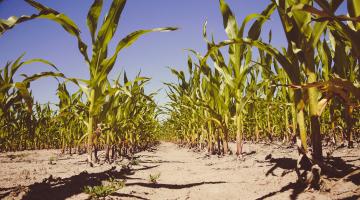
Potential and emerging impacts of the changing institutional landscape on the global exchange of genetic resources for food and agriculture (GRFA)
Potential and emerging impacts of the changing institutional landscape on the global exchange of genetic resources for food and agriculture (GRFA)

Contested resource inputs to science
Contested resource inputs to science: How institutional provisions on the access and use of materials and data affect research collaboration structures and outcomes

Netwise II: Women and Minority Networks in Academic Science and Engineering (NSF)
This empirical research proposal addresses the characteristics and role of networks in career advancement, outcomes, and mentoring for women and underrepresented minority academic scientists in non–Research I institutions.

Netwise I: Women in Science and Engineering: Network Access, Participation, and Career Outcomes (NSF)
The education system in the United States produces and advances substantially fewer women than men in most STEM fields.

Climate Change for Agriculture and Food Security (CCAFS)
Barriers and Facilitators to Germplasm Exchange in Developing Countries: Implications for Responses to Climate Change

State EPSCoR Program Evaluations (NSF)
Originally established by NSF in 1979, EPSCoR supports the development of scientific infrastructure that enhances in a state science and engineering (S&E) capacity.
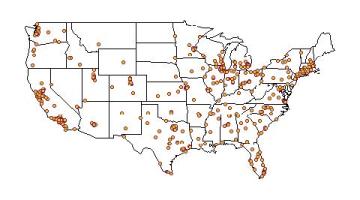
National Study on Technology and Civic Engagement in Local Governments
This research aims to develop and administer a national survey of state and local government agencies to examine the extent to which different agencies utilize technology (Internet and non-Internet based) to seek input from citizens and other stakeholders.

National Study on Transit Agency Weather Response and Preparedness (US DOT)
This longitudinal study examines the response to, preparation for and impacts of extreme weather on public transit agencies in the United States.
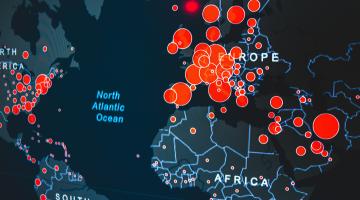
RAPID COVID-19 Research: Linking institutional logics and data sharing to research outputs before and after SARS-CoV-2 peak infection.
Funded through the National Science Foundation's RAPID program in July 2020, this research takes advantage of the unique opportunity window offered by the COVID-19 crisis to understand how and why institutional determinants of data access and sharing evolve over the course of a public healt

EAGER: Assessing the Role of Social Innovation for Resilience in Global Collaborative Research (NSF)
This project addresses the topic of global social innovation in science capacity in the face of the COVID-19 pandemic by examining three intertwining features of the social dynamics of international collaborative teams: Social innovation, Adaptation and Resilience, and Learning and Transfer

Connecting nuances of foreign status, professional networks, and higher education outcomes in STEM disciplines over time
This study will advance research on foreign faculty by conceptualizing a broader notion of foreign status that goes beyond nationality of birth and education to include cultural characteristics, family composition and location, local community engagement, and international professional expe

Post COVID-19 Implications for Genetic Diversity and Genomics Research & Innovation: A Call for Governance and Research Capacity
CSTEPS co-led research and development of a new white paper titled Post COVID-19 Implications for Genetic Diversity and Genomics Research &Innovation: A Call for Governance and Research Capacity.

Planning Grant: Engineering Research Center for Innovative Built and Regenerative Environments for Advancing Timeless Habitability and Equity (I-BREATHE)
CSTEPS is participating in this planning grant effort with ASU's Fulton Schools of Engineering.

Evaluation: Large-Scale CoPe: The Cascadia Coastlines and People Hazards Research Hub (NSF)
In response to the direct call by Pacific Northwest coastal communities for “a coordinated research agenda among universities, governmental agencies, NGOs, and others” to help them achieve resilience, the Cascadia Coastlines and Peoples Hazards Research Hub (Cascadia CoPes hub) will inform
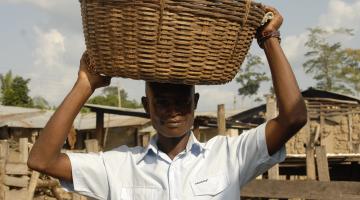
Accelerating Climate Adaptation via Meso-level Integration (ACAMI)
This project, funded by a $1.25 million grant to ASU from the Bill & Melinda Gates Foundation looks at the ways in which organizations help African farmers adapt to Climate Change.
Partners
